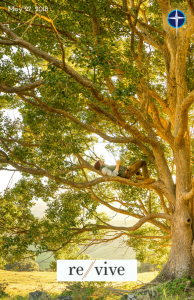 Would you rather eat an orange, freshly picked from a citrus grove in Southern California or an orange-flavored piece of candy, picked up at the gas station? Both items look and taste kind of the same, but the effect each one has on the consumer couldn’t be more different. Both taste good, but only one is good for you. We tend to think of sophistication as a good thing. About an incomprehensible piece of modern art, we might say: “How sophisticated!” Of a university’s course offering in situational ethics, we might say: “How very brave. How very sophisticated!” We might even be persuaded to buy the world’s most sophisticated beverage: water-flavored water. For all the allure of sophistication and the envy it produces, its meaning and definition is not very attractive. To sophisticate something is to make it less natural or simple; to alter or pervert it in some way. It’s an old Middle English word derived from the Medieval Latin sophisticare, meaning to tamper with, disguise, or trick. In this week’s reading for our Sunday morning roundtable discussion, Desi Maxwell makes the case that much of modern Christianity is too sophisticated; more corn syrup than citrus. We’ll be challenged to shed the synthetic in pursuit of the authentic and to inventory our faith to see how much of our thought and practice has Christ’s trademark on it. Prepare to find your walk energized and your faith freed. See you Sunday morning!
Would you rather eat an orange, freshly picked from a citrus grove in Southern California or an orange-flavored piece of candy, picked up at the gas station? Both items look and taste kind of the same, but the effect each one has on the consumer couldn’t be more different. Both taste good, but only one is good for you. We tend to think of sophistication as a good thing. About an incomprehensible piece of modern art, we might say: “How sophisticated!” Of a university’s course offering in situational ethics, we might say: “How very brave. How very sophisticated!” We might even be persuaded to buy the world’s most sophisticated beverage: water-flavored water. For all the allure of sophistication and the envy it produces, its meaning and definition is not very attractive. To sophisticate something is to make it less natural or simple; to alter or pervert it in some way. It’s an old Middle English word derived from the Medieval Latin sophisticare, meaning to tamper with, disguise, or trick. In this week’s reading for our Sunday morning roundtable discussion, Desi Maxwell makes the case that much of modern Christianity is too sophisticated; more corn syrup than citrus. We’ll be challenged to shed the synthetic in pursuit of the authentic and to inventory our faith to see how much of our thought and practice has Christ’s trademark on it. Prepare to find your walk energized and your faith freed. See you Sunday morning!



 Romans 6:1-4
Romans 6:1-4 John 16:20-24
John 16:20-24
